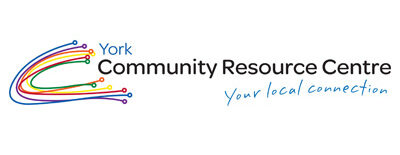Student Tips

You
- Family, work and study are important, but you and your health are the most important.
- Set targets and make them realistic to reduce stress. A target is not to complete an assignment by a due date but to have the mind map complete by X, the draft by Y and the final by Z, being a date set prior to the submission date.
- Use a wall calendar to mark out all life and study milestones so it is a progression tool always visible.
- Ask others for help, support and advice where needed even if it is a family member to reduce distractions or the Student Support Officer or your course coordinator.
- So, take a few deep breaths, plan regular breaks, give yourself set times to focus on study and work steadily toward achieving what you set out to do in your academic goals.
Study Skills
Most universities have a study skills or tips information page. Find what your university offers and work through their suggestions to see what works for you. The following tips are generic and are not structured to your university or specific course.
Mind Map
A mind map involves working with a central theme and linking related ideas which radiate out from the theme. By preforming a ‘brain dump’ and linking key areas to focus on can be a good way to start planning what your work will need to encompass. Mind maps can also be used to plan and focus on –
- preparing for examinations
- preparing a structure for writing essays
- preparing presentations
- brainstorming ideas
- memorizing subject notes, books, and materials
- for general study and revision of information
A simple hand drawn map will get the basic plan flowing but there are many free online templates to use too. A great way to get started!
Plan Your Essay
Read your assessment task description for any information on how many words to allocate for each part of the essay.
Alternatively, a general rule is 10% for the introduction, 75% for the body of the document, 10% for the conclusion and 5% for in-text citations.
The body of the document should contain the key points in your argument. In a 2000 word essay, this will be 1500 words. Each key point should use 1-3 paragraphs, with an average of around 200-400 words. This allows for around 5 key points, each supported by 2 or 3 references. Preferably use direct or primary references, although sometimes you will need to use in-text references, too.
Writing
The Academic Phrasebank is a general resource for academic writers. It makes explicit the more common phraseological ‘nuts and bolts’ of academic writing. A compendium of commonly used phrasal elements in academic English.
When writing focus on getting the information, data, references etc correct. Don’t sweat the grammar and spelling as every time you stop to correct this you lose the train of thought and increase the time to write your essay. If you take a break, or at the end of each session, then check.
Remember to use word count to check your word allocation for each part of your essay.
Spelling & Grammar
Check using the spelling and grammar feature in Word. The find and replace tools can also assist. Grammarly is an online tool for checking that can also check for plagiarism
References
- Find what is available from your university website on ‘how to’ reference correctly.
- Check your assessment task description for any information on the style of referencing that the assignment requires.
- Always note separately where each reference came from as it will save time if needing to return to the source.
- Compile the reference list as you go to avoid missing any or last-minute panic.
Proofreading
- Proofreading is vital.
- When planning your target dates, ensure you leave time to proofread, preferably after having a day or two away from the assignment so you review it with ‘fresh’ eyes.
- Use the tools suggested above to check, but another tool is the ‘Talk’ function in Word to read it back to you.
- An external proofreader is invaluable, whether it is a peer, mentor or one of the online services.
Your university may have access to one of these options:
Revision
Again, your university will have suggestions, but a basic checklist is:
- Find a suitable study environment.
- Plan your timetable over the weeks/days beforehand.
- Set reasonable targets for each study/revision period.
- Actively revise by taking notes, making up cards, asking questions rather than passively reading.
- Stop regularly and recap in writing what you have just read.
- It is ok to doodle, draw diagrams and mind maps, if this is your visual cue.
- Explain the topic to someone who knows nothing about it.
- Redo an old test, or review a past exam.
- Let family help by brain storming, testing you, keeping you on track with your timetable or emotional support.
- Take regular breaks.
- Doing something relaxing each day to ‘reset’.
- Talk to the SSO or course coordinators if you need more resources.
Online card makers can be found at: - Flashcard Maker
- Quiz Maker Quizlet
Note-taking Apps
Organise your life with Evernote.
Handwriting app for iPad Penultimate.
Checklists
Before you submit you may wish to review a checklist. Your university may have one, alternatively you can download a checklist.
Download the Lumen WRUC Frequently Asked Questions.










